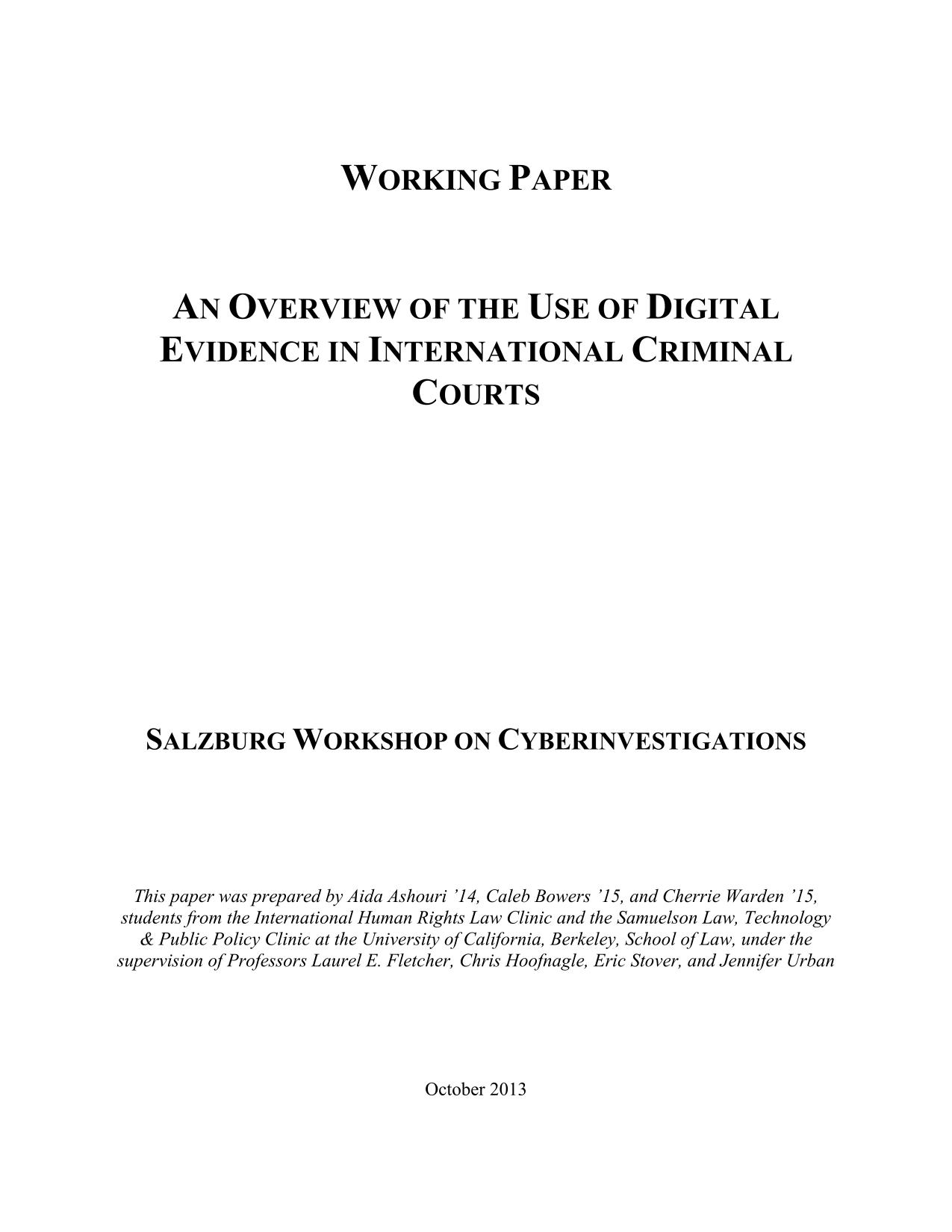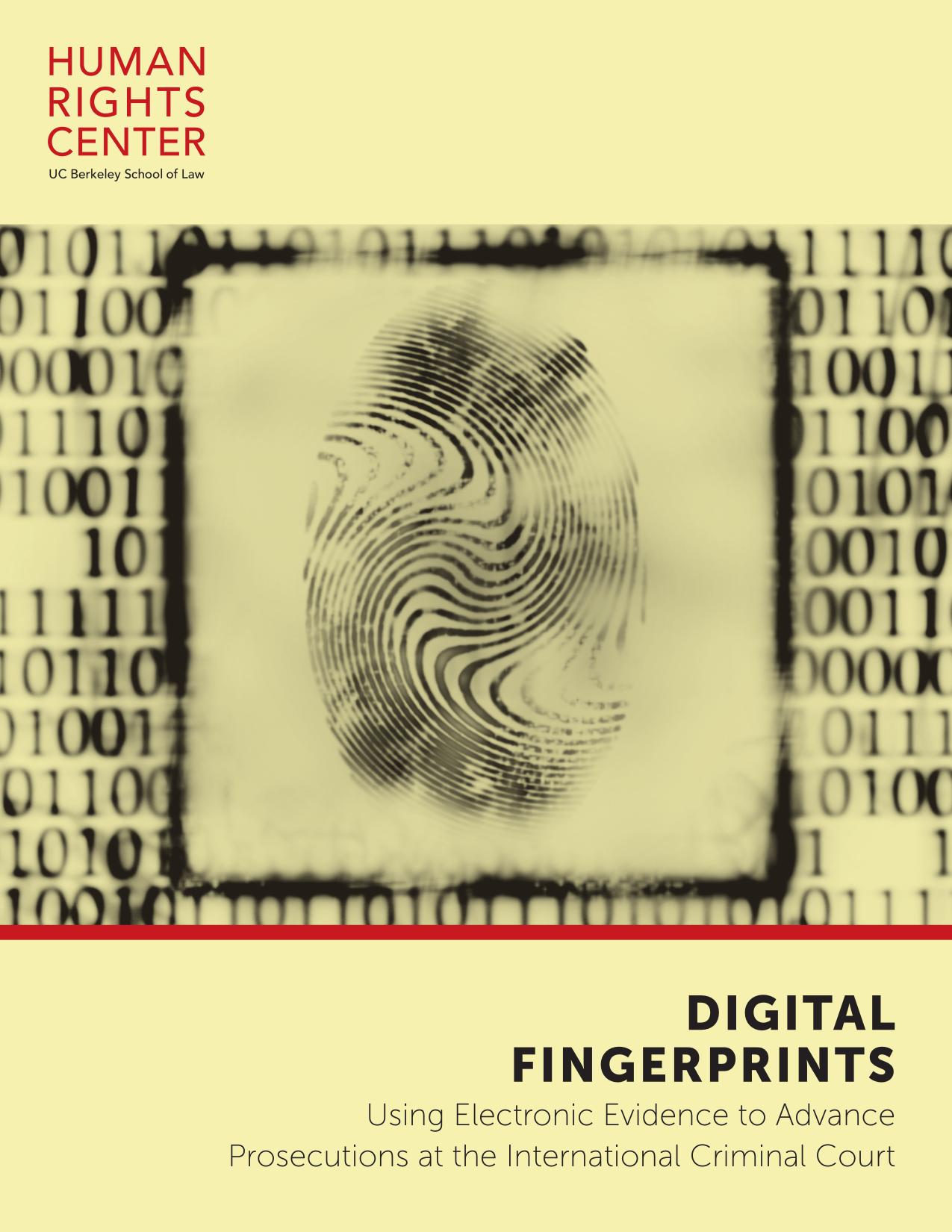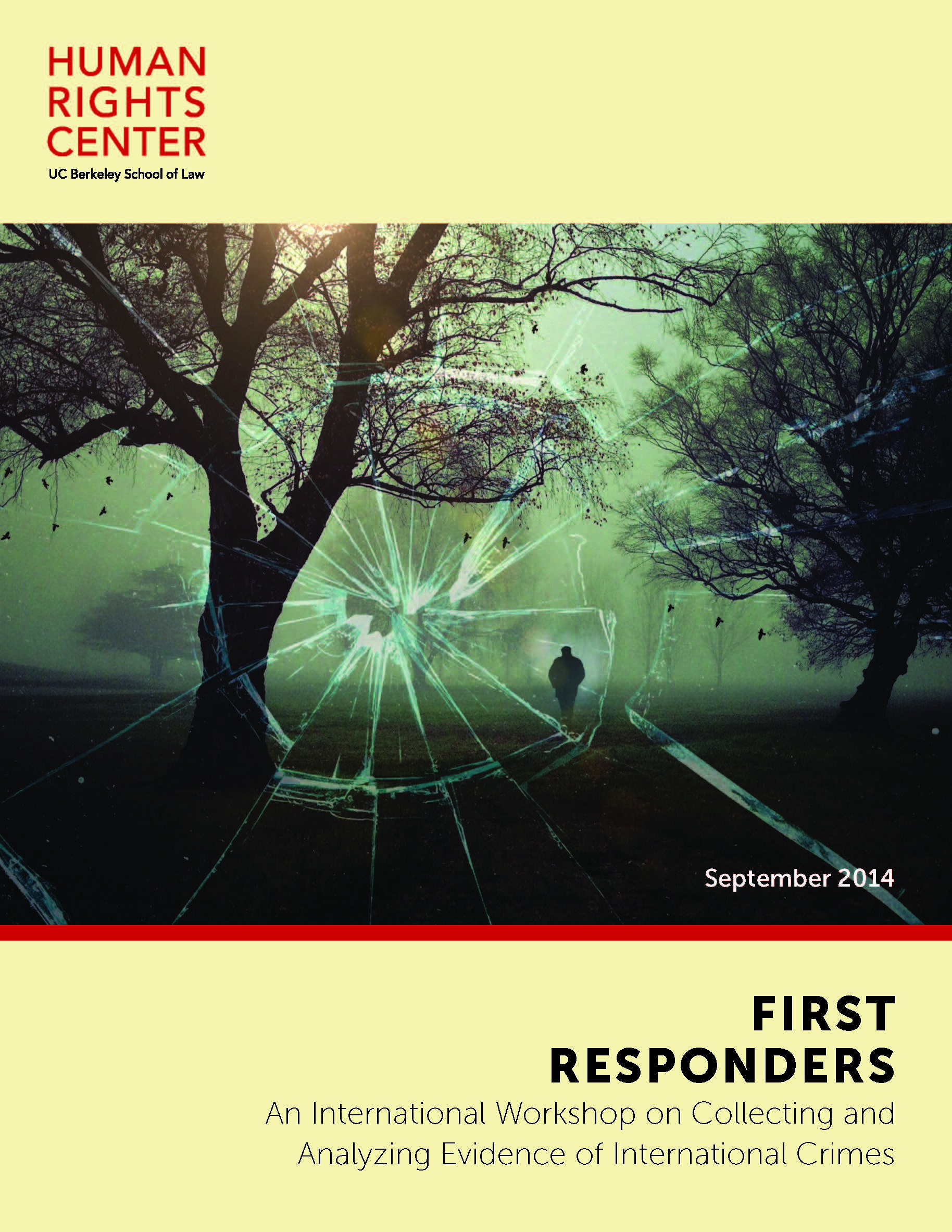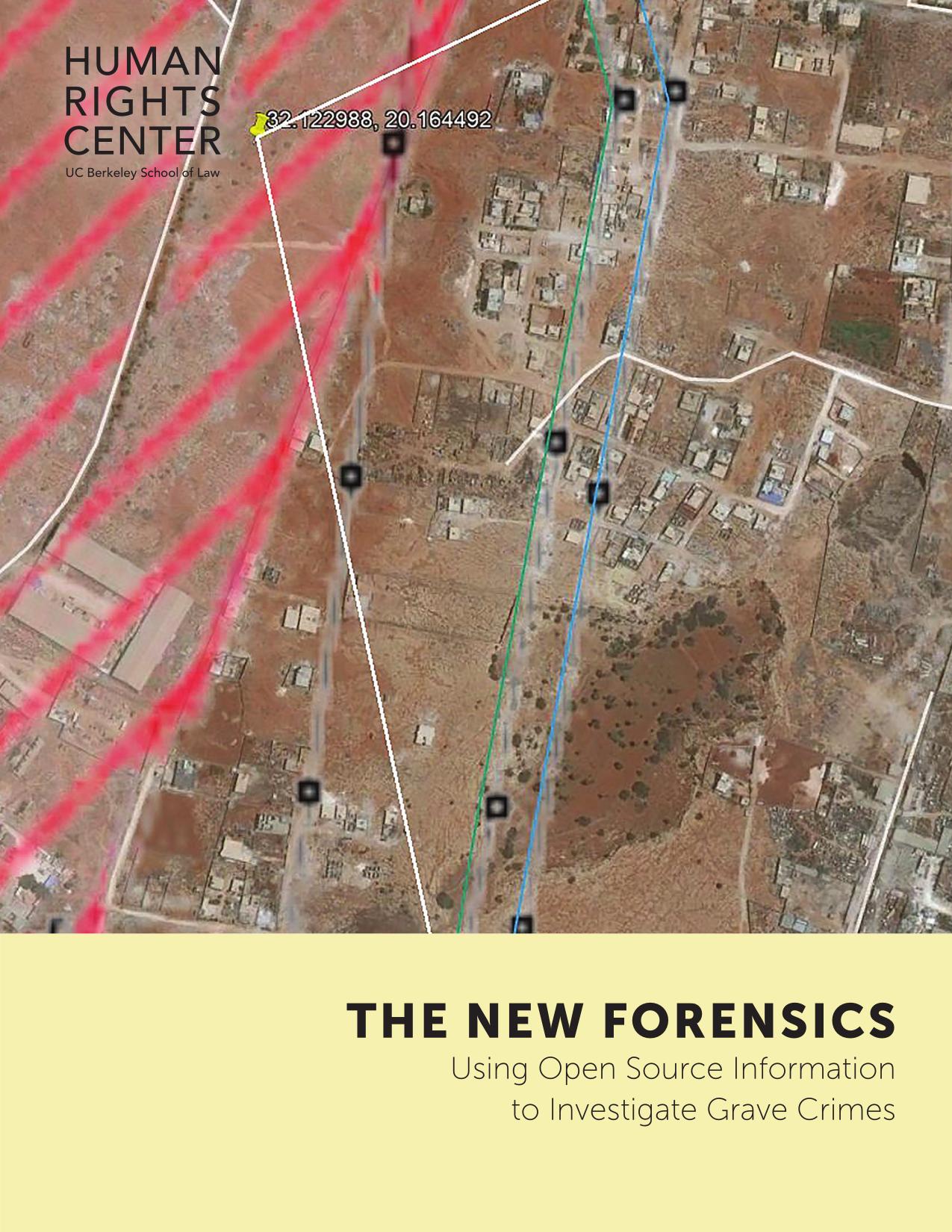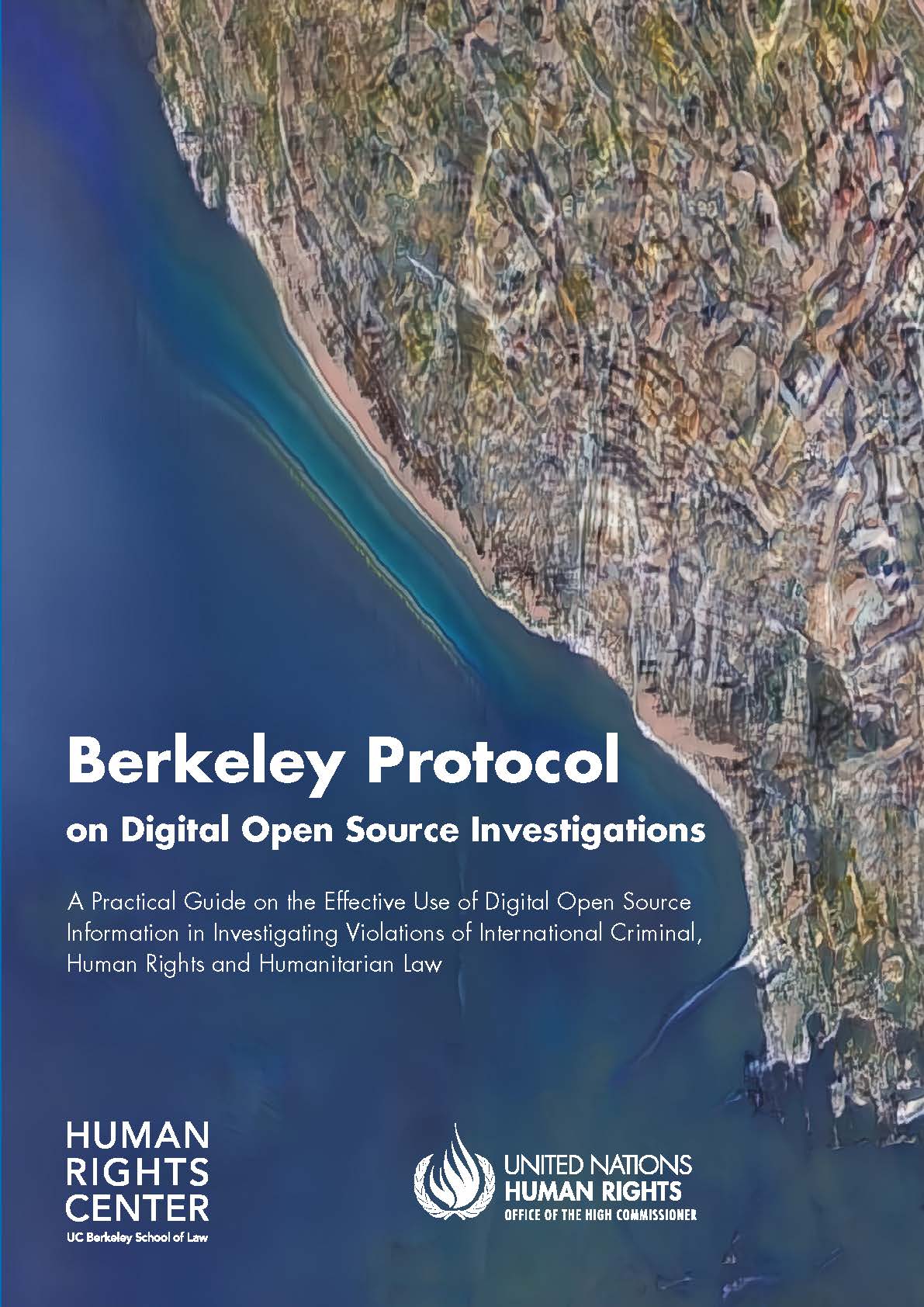An Overview of the Use of Digital Evidence in International Criminal Courts
Publication Date
October 1, 2013
Publication Type
Working Paper
Topic(s)
International Criminal Law, Open Source Investigations, Technology
Summary
As digital evidence becomes more prevalent, it poses challenges to the International Criminal Court. This paper reviews some of the leading international criminal cases involving digital evidence, with a particular focus on the ICC, and identifies four types of evidentiary considerations specific to digital evidence: (1) authentication; (2) hearsay; (3) provenance (chain of custody); and (4) preservation of evidence. Using these four considerations, this paper aims to contribute to discussion on how best to respond to the challenges of digital evidence. The paper concludes with several questions raised by this analysis.
